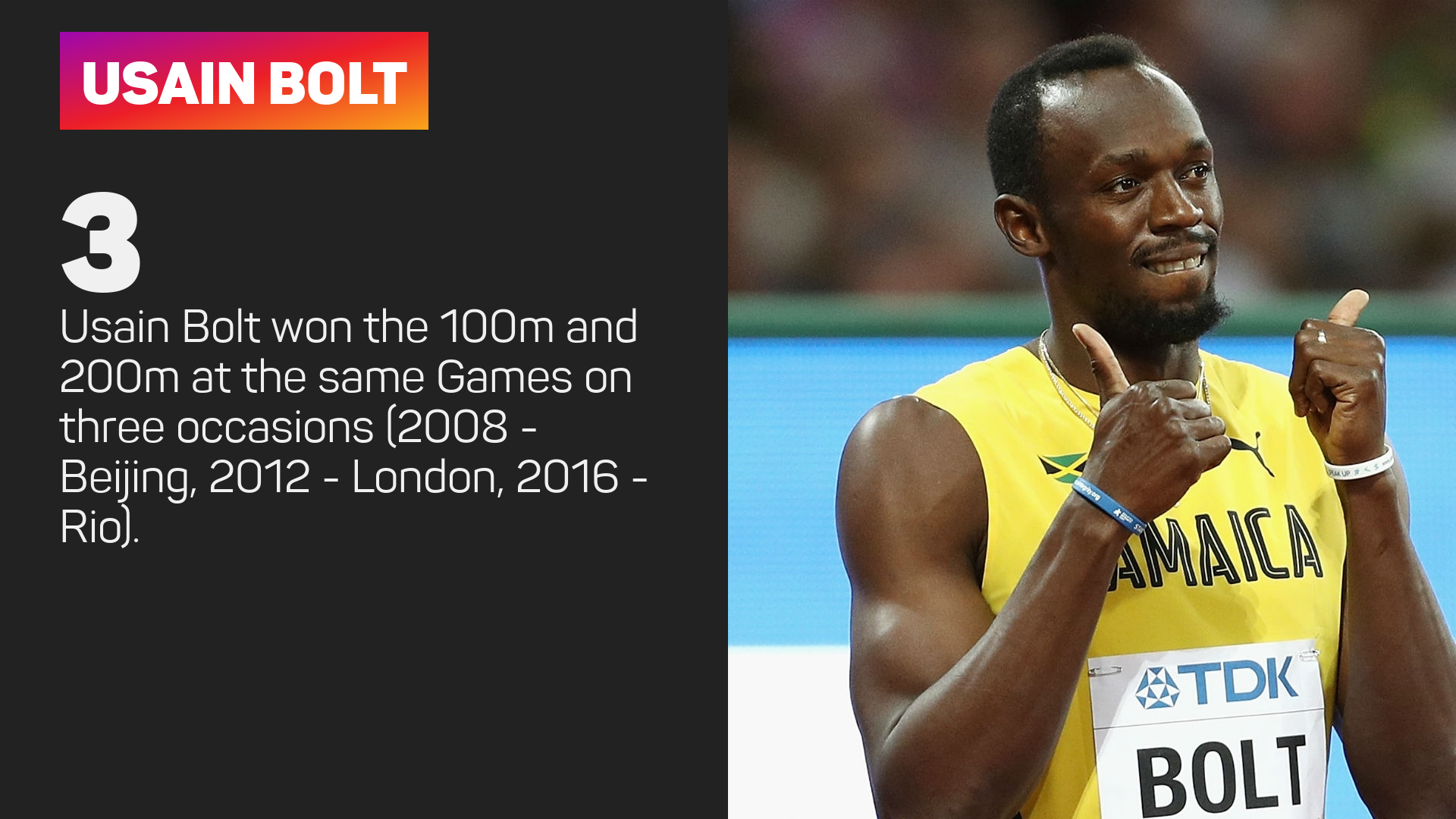Usain Bolt's dominance of the sprint scene was bad for athletics as certain track and field events did not get the coverage they deserved, according to former hurdles star Edwin Moses.
Jamaican sprinter Bolt won 19 major titles – eight gold medals at the Olympics and 11 at the World Championships – before bringing an end to his career in 2017.
The 34-year-old won the men's 100 metres and 200m at three successive Olympics, setting a record time in both events.
But while Bolt changed the sporting landscape over a medal-laden decade, Moses told Stats Perform it was good to see other disciplines take centre stage at Tokyo 2020.
"I think the sports somewhat suffered when Usain was always winning," he said. "A lot of the meets wouldn't even get television coverage unless he was coming into the race.
"That started happening back in the 80s where TV kind of got addicted. They wouldn't cover the sport unless they had someone going for a world record.
"Track and field is like a three ring circus – it takes a family in order to have a good track meet. I was really impressed with the shot put this year and the women's triple jump.
"You have to have all these things going on. It's not just about who's going to be the fastest man or the woman fastest woman.
"I was very pleased to see the 400 metres hurdles really be the marquee event of the Olympic Games, the men's and the women's. When I was running, it was a marquee event.
"There was a lot of focus on the 100 metres with Ben Johnson and Carl Lewis back then, but finally the 400 metres hurdles is at the peak of its history."
All because of my Fans.
— Usain St. Leo Bolt (@usainbolt) August 7, 2021
Infinite love for my peepspic.twitter.com/z97to0Fg1v
Moses added: "I just think you have to have about 15 good stars, well-known stars that hopefully become household names.
"When I was running we had Jackie Joyner, Willie Bags. We had just a tonne of athletes from all over the world that were doing really, really great they won all the time.
"The field events are just as important as the running events that men's shot put was outstanding. The women's discus was outstanding, as was the women's triple jump.
"We need to have all these athletes getting massive backing from the federation in order to have a really good sport because it's a worldwide sport.
"No one wants to just watch the 100 metres and the 200 metres and then tune out on everything else and switch the channel – you have to be able to keep people's attention."
Italy's Marcell Jacobs became the first 100m Olympic champion of the post-Bolt era with a time of 9.80 seconds in Tokyo, falling short of the Jamaican's record of 9.58s.
All six finishers in the 100m final went under 10s and Moses, who set the world record four times in 400m hurdles, believes Bolt's record can one day be broken.
"It's possible. It's possible. The men's 100 metres this year didn't come anywhere close to what we expected," he said. "I think people were expecting like a 9.65 or something.
"The time wasn't actually that great but then you have the heat and humidity and all the rounds that they have to run it's a crapshoot you never really know."

One of the more remarkable moments of the 2020 Games was Karsten Warholm's victory in the men's 400m hurdles, the Norwegian knocking a huge 0.76s off his world record.
Sydney McLaughlin took 0.44s off her world record in the women's equivalent, while Athing Mu and Keely Hodgkinson broke the American and British records in the 800m event.
That has prompted concerns over the design of the Tokyo track, which is said to given athletes a one to two per cent performance advantage compared to previous years.
"I've seen at least three articles on that," Moses said. "I think that at some point they're going to have to deal with the shift in paradigm because of technology issues.
"In track there's been a lot of debate I guess over the last two to three years about that so I'm not in tune with what they go through. I'm sure they'll revisit it."




















